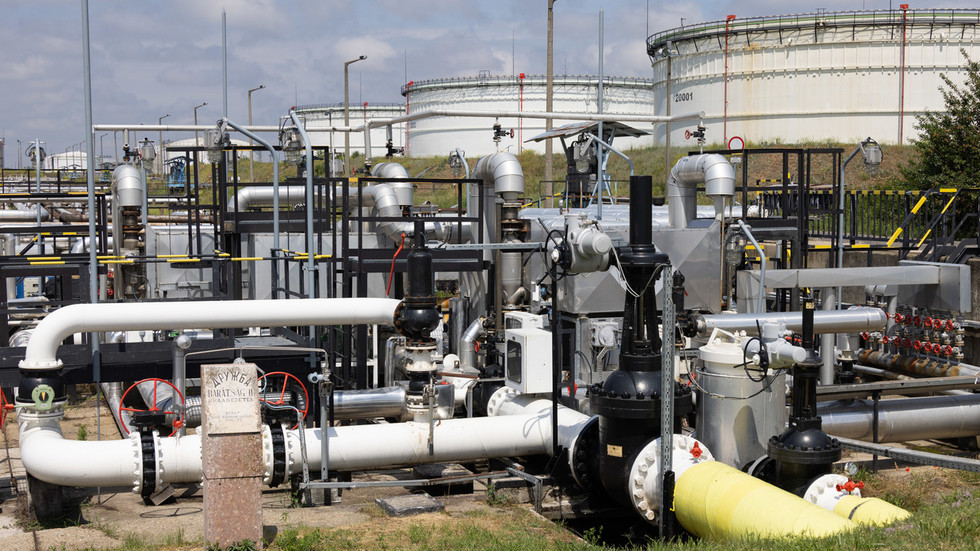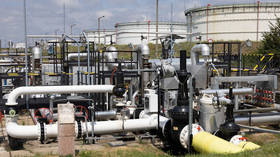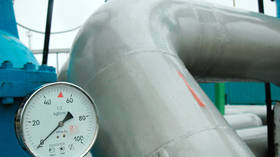
Kiev has increased the fee that was previously paid by a Russian company

The entry point of the Druzhba pipeline between Hungary and Russia at the Danube Refinery in Szazhalombatta, Hungary © Global Look Press / Attila Volgyi
Hungary is expected to begin paying Kiev for the transit of Russian crude oil via the Ukrainian part of the Druzhba pipeline in order to keep supplies flowing, Reuters reported on Friday, citing people familiar with the issue.
The decision reportedly comes as Ukrtransnafta, the operator of Ukraine’s oil pipeline network, said it would raise tariffs for transporting crude to Hungary and Slovakia by €2.10 ($2.28) per ton to €13.60 ($14.78), representing a hike of 18.3%.
The Ukrainian company notified Russia’s pipeline operator Transneft in late December that the new rates would come into force on January 1. Back then, the Russian firm said it had received the notification and was studying it.
The Ukrainian operator reportedly proposed that buyers of Russian crude transported via Druzhba should pay the fees themselves, with Hungarian oil refiner MOL agreeing to start making the payments.
According to the sources quoted by the agency, the two firms now need to prepare a new agreement to reflect the increased transit fee that will be applied from May.

Druzhba, one of the longest pipeline networks in the world, carries crude some 4,000km from Russia to refineries in the Czech Republic, Germany, Hungary, Poland and Slovakia. Supplies via the route have not been targeted by Brussels’ embargo on Russian crude.
MOL Group owns refineries in Hungary and Slovakia, both of which receive oil through the southern offshoot of the Druzhba pipeline, while Czech Unipetrol, the other refiner that receives crude via the route, is controlled by Poland’s PKN Orlen.
Ukraine continues to collect payments for the fuel flowing through pipelines that run across its territory, while urging all other countries to stop purchasing Russian oil and gas.
“As of today, there are no prerequisites or reasons to expect that Druzhba will not transport oil as usual in April,” a spokeswoman at Ukrtransnafta said, as quoted by Reuters, having declined to comment on the issue of transit fees.
For more stories on economy & finance visit RT’s business section




